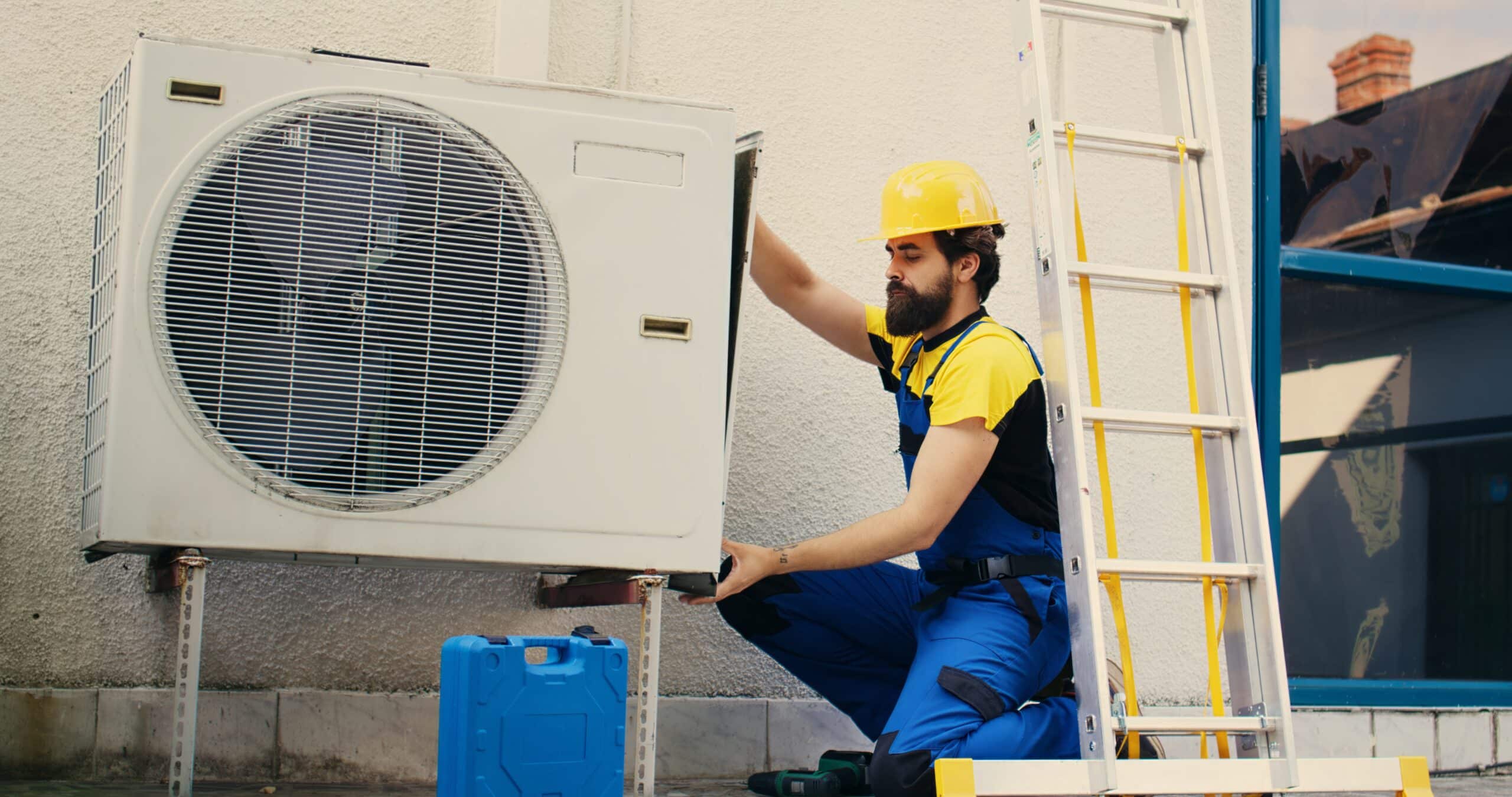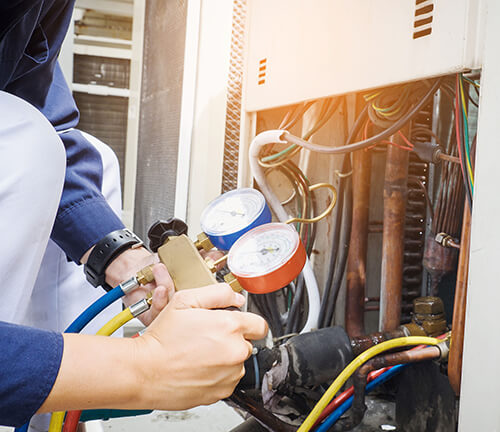How to Choose the Right Heating And Cooling System for Your Requirements
Selecting the suitable Heating and cooling system is a vital decision that calls for cautious consideration of different elements. The myriad of system types available can complicate this procedure, leading one to wonder which course inevitably leads to optimum comfort and effectiveness.
Assess Your Home Dimension
Analyzing your home dimension is an important very first step in choosing the proper Heating and cooling system. A Heating and cooling system that is too little will certainly battle to preserve comfortable temperatures, leading to boosted power intake and wear on the system.
To properly assess your home size, gauge the square video footage of each room, taking into consideration elements such as ceiling height and the layout. Additionally, think about the insulation high quality and the number of home windows, as these components impact thermal performance. Residences with open layout might call for different system arrangements contrasted to those with numerous separated areas.
Utilizing the Manual J load calculation technique can provide a more exact estimate of your cooling and heating needs. This technique make up various factors, consisting of regional climate, solar gain, and occupancy patterns. By carefully examining these aspects, you can guarantee that your selected cooling and heating system is appropriately sized, bring about improved convenience, energy effectiveness, and long life of the devices.
Determine Your Budget Plan
Establishing your budget plan is a critical action in the HVAC system choice process, as it establishes the specifications for your choices - DMAKS HVAC. A heating and cooling system is a considerable investment, and recognizing your monetary restrictions will aid tighten down options that fit within your methods
Begin by examining not just the preliminary acquisition rate but additionally setup costs, which can differ dramatically depending upon the complexity of the job. Additionally, consider continuous expenditures such as upkeep, repair work, and power intake. A system might appear inexpensive initially yet can cause greater costs over time if it is less effective.
It is a good idea to allocate a backup fund for unexpected expenses that may develop during installment or first system changes (DMAKS HVAC). Furthermore, explore financing choices or rebates that may be readily available, as these can reduce the problem of upfront expenses
Eventually, having a clear budget permits you to engage with cooling and heating specialists a lot more properly, ensuring you obtain customized suggestions that aligns with your monetary goals and home demands. By being attentive concerning your budget plan, you can make enlightened decisions that improve convenience without compromising economic security.
Evaluate Power Efficiency
Energy effectiveness plays an important role in the general efficiency and cost-effectiveness of your HVAC system. When selecting a system, it is necessary to consider its energy efficiency scores, as these numbers directly influence your energy bills and environmental footprint. Try to find systems with a high Seasonal Power Effectiveness Ratio (SEER) for cooling down and a high Yearly Fuel Use Effectiveness (AFUE) rating for home heating. Greater ratings suggest greater efficiency, indicating more convenience for less energy usage.
Furthermore, think about the Energy Star certification, which represents that the system meets rigorous performance guidelines set by the Environmental Protection Company. Buying a Power Star-rated cooling and heating system can cause substantial cost click here to find out more savings gradually, especially in locations with extreme temperature level changes.
One more variable to evaluate is the system's size and capability. A large or small device can cause inefficiency and increased power costs. DMAKS HVAC. Proper sizing, typically determined via a Hand-operated J load calculation, makes sure that the system runs at ideal efficiency


Consider Climate and Environment
When picking an a/c system, it is crucial to consider the neighborhood environment and ecological problems, as these variables considerably affect the system's efficiency and efficiency. Various regions experience varying temperature level extremes, moisture levels, and seasonal modifications, every one of which impact home heating and cooling down demands.

Moreover, neighborhood environmental variables, such as air top quality and prospective irritants, must inform your option. Solutions equipped with innovative filtration technologies can help reduce toxins and give cleaner air. Additionally, consider the energy resources available in your area-- some heating and cooling systems are a lot more efficient when powered by all-natural gas or sustainable energy resources.
Eventually, straightening your heating and cooling system choice with your neighborhood environment and environmental considerations will bring about enhanced convenience, boosted performance, and lower energy costs.
Explore System Types and Features
As homeowners seek to optimize comfort and performance, checking out the different kinds of cooling and heating systems and their unique functions comes to be vital. The key kinds of cooling and heating systems consist of central air, heatpump, ductless mini-split systems, and furnaces. Each system provides distinctive advantages customized to various requirements and choices.
Central air conditioning systems give consistent cooling throughout a home, making them perfect for bigger areas. Heatpump work as both heating and cooling services, utilizing electricity to move heat, which can reference cause lower power expenses. Ductless mini-split systems are ending up being significantly prominent due to their versatility and convenience of installment, allowing house owners to control the temperature in individual areas without extensive ductwork.

Verdict
To conclude, selecting the proper HVAC system necessitates cautious factor to consider of different variables, consisting of home dimension, budget plan restraints, energy effectiveness, local climate, and offered system types. A complete evaluation of these aspects ensures optimal convenience and cost-effectiveness. By complying with an organized approach, homeowners can make educated decisions that line up with their particular demands and preferences, ultimately resulting in boosted interior air high quality and power cost savings.
Comments on “Keep Your HVAC System Running Smoothly with Help from DMAKS HVAC.”